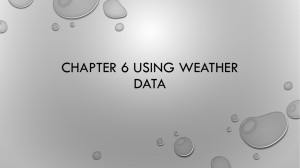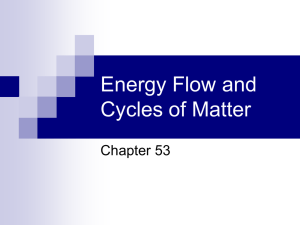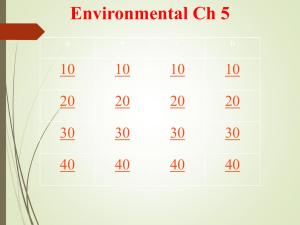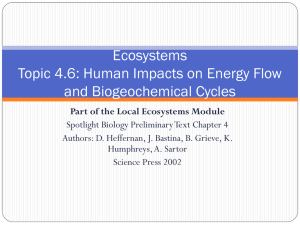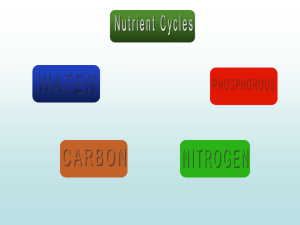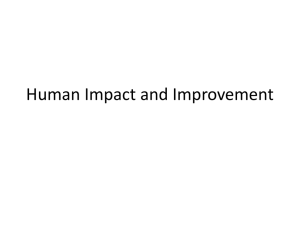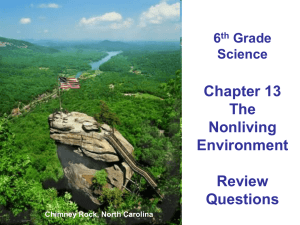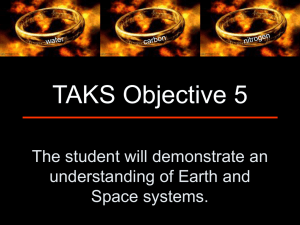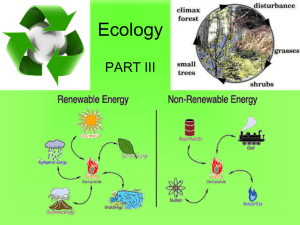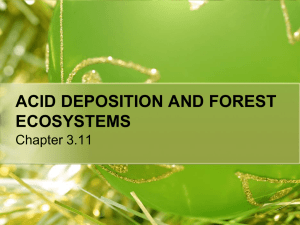Cycle Jeopardy - Western Reserve Public Media
advertisement
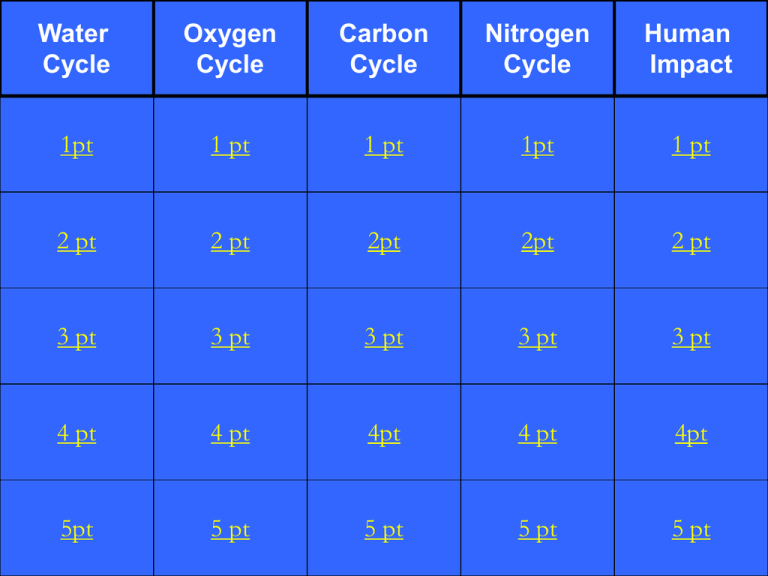
Water Cycle Oxygen Cycle Carbon Cycle Nitrogen Cycle Human Impact 1pt 1 pt 1 pt 1pt 1 pt 2 pt 2 pt 2pt 2pt 2 pt 3 pt 3 pt 3 pt 3 pt 3 pt 4 pt 4 pt 4pt 4 pt 4pt 5pt 5 pt 5 pt 5 pt 5 pt Water changes from a gas to a liquid through_______ a. b. c. d. Condensation Evaporation Infiltration Transpiration Water changes from a gas to a liquid through_______ a. Condensation Water changes from a liquid to a gas through_______ a. b. c. d. Condensation Evaporation Infiltration Transpiration Water changes from a liquid to a gas through_______ b. Evaporation Water goes “into” the ground through________ a. b. c. d. Condensation Evaporation Infiltration Transpiration Water goes “into” the ground through________ c. Infiltration Plants return water to the atmosphere through_____ a. b. c. d. Condensation Evaporation Infiltration Transpiration Plants return water to the atmosphere through_____ d. Transpiration The watery layer of the earth is called the___________ a. b. c. d. Atmosphere Lithosphere Hydrosphere Precipitation The watery layer of the earth is called the___________ c. Hydrosphere The symbol for Carbon is__ a. C b. Car c. Cb The symbol for Carbon is__ a. C Humans and animals breathe out ___________ a. b. c. d. Oxygen Carbon Carbon dioxide Nitrogen Humans and animals breathe out ___________ c. Carbon dioxide A colorless, odorless flammable gas that is the major part of natural gas is a. Carbon dioxide b. Methane c. Nitrogen A colorless, odorless flammable gas that is the major part of natural gas is b. Methane Photosynthesis converts _____ and _____ into carbohydrates. a. Carbon dioxide and water b. Oxygen and water c. Nitrogen and water Photosynthesis converts _____ and _____ into carbohydrates. a. Carbon dioxide and water Photosynthesis occurs in_____ a. b. c. d. Humans Animals Plants and trees Factories Photosynthesis occurs in_____ c. Plants and trees The gaseous envelope surrounding the earth is the_______ a. Biosphere b. Lithosphere c. Atmosphere The gaseous envelope surrounding the earth is the_______ c. Atmosphere The process that breaks apart simple food molecules to release energy is________ a. Photosynthesis b. Combustion c. Respiration The process that breaks apart simple food molecules to release energy is________ c. Respiration Another name for glucose is a. b. c. d. Protein Fat Solution Sugar Another name for glucose is d. Sugar Substances reacting with oxygen to give heat and light is called______ a. b. c. d. Protein Combustion Respiration Sugar Substances reacting with oxygen to give heat and light is called______ b. Combustion The solid part of the earth consisting of the crust and the outer mantle is called the__________ a. b. c. d. Biosphere Atmosphere Lithosphere Sugar The solid part of the earth consisting of the crust and the outer mantle is called the__________ c. Lithosphere The most abundant element in the earth’s atmosphere is_______ a. b. c. d. Oxygen Carbon Water Nitrogen The most abundant element in the earth’s atmosphere is_______ d. Nitrogen What percent of the atmosphere is nitrogen? a. b. c. d. 85% 81% 78% 70% What percent of the atmosphere is nitrogen? c. 78% Gaseous nitrogen must be fixed by ________ before it can be used. a. b. c. d. oxygen carbon bacteria germs Gaseous nitrogen must be fixed by ________ before it can be used. c. bacteria Nitrogen is pass through the_________ a. b. c. d. water food chain oxygen cycle air Nitrogen is pass through the_________ b. food chain When an organism dies, _______ break down the body. a. b. c. d. producers users decomposers air When an organism dies, _______ break down the body. c. decomposers Burning fossil fuels and forests releases various forms of nitrogen contributing to global warming and acid rain. True or False Burning fossil fuels and forests releases various forms of nitrogen contributing to global warming and acid rain. True Fewer plants means less oxygen and more carbon dioxide. This enhances the balance of the natural oxygen cycle. True or False Fewer plants means less oxygen and more carbon dioxide. This disturbs the balance of the natural oxygen cycle. False Every time something burns (combustion), more carbon dioxide is released into the atmosphere. True or False Every time something burns (combustion), more carbon dioxide is released into the atmosphere. True Combustion of fossil fuels adds sulfur and nitrogen to the air. These mix with the water vapor in the atmosphere and make it more acidic. True or False Combustion of fossil fuels adds sulfur and nitrogen to the air. These mix with the water vapor in the atmosphere and make it more acidic. True It is unnecessary to use alternative forms of fuels like wind and solar forms. True or False It is necessary to use alternative forms of fuels like wind and solar forms. False
